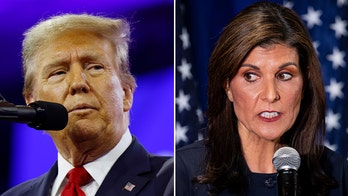Power Play 3/29/2013
New gas regulations show slipping middle class agenda. And can GOP bring Obama health law into budget battle?
"I'm a warrior for the middle class. I'm happy to fight for working people. Because the only class warfare I've seen is the battle that's been waged against the middle class in this country for a decade."
-- President Obama in a Sept. 22, 2011 campaign speech in Cincinnati answering Republican charges that he was engaged in class warfare.
This is an unhappy time for President Obama’s Environmental Protection Agency to announce new gasoline regulations.
The agency claims that the new rules will add only a penny to the price of a gallon of regular unleaded while industry groups say it will be closer to a dime. Whatever the estimate, American consumers are not in the mood to hear about higher pump prices.
Thanks in part to lowered economic expectations, prices have dipped after a 60-cent-per-gallon surge in the first three months of the year. But the average price still stands at $3.65 per gallon and will likely edge up as summer nears. And if something goes further awry in the Middle East, well…
Both presidential candidates last year spent many months talking about their love for the middle class. It was all they could seem to talk about. One was a multi-millionaire explaining how he was still consumed with the plight of Americans in the $40,000 to $70,000 household-income range. The other was Mitt Romney.
Obama’s campaign centered on the claim that Romney, a quarter-billionaire corporate captain, didn’t really care about struggling families and instead was just trying to help himself and other rich dudes get richer. The president hung his campaign on a promise to fight for higher taxes on said rich dudes in order to finance government spending on programs to benefit the middle class.
Middle-class voters, distrustful of both big government and big business, stuck with the incumbent. After facing serious problems with lower-middle-class voters for much of his presidency, Obama managed to actually improve his showing with those from households earning between $30,000 and $50,000 from a 12-point advantage in 2008 exit polls to a 17-point margin in 2012.
But the latest FOX News poll shows that 68 percent of voters from households under the $50,000 line (territory that takes in Obama’s most ardent supporters, those in the lowest income brackets, in addition to more moderate middle-class members) said they were nervous about the economy.
It’s understandable. Not only are gasoline prices high, but every worker saw their paychecks shrink as part of Obama’s suite of tax increases in January. Health care and health insurance costs are up. The job market remains squishy.
For the coupon-clipping moms out there, there’s plenty of reason to be anxious, no matter where the Dow Jones Industrial Average stands.
Obama has talked some about his campaign promises of increased federal spending on subsidies and programs for middle-class folks, but those notes have faded into the background since Election Day.
[pullquote]
This is in part a nod to the reality that congressional Republicans will not agree to higher spending and are instead focused on deficit reduction. As the president tries to get back on the good foot in his budget battle, talking up higher spending would be bad news. His budget will certainly include some subsidies and stimuli, but political reality and public option demand that the president sound thrifty these days.
But Obama has focused on some other political impossibilities, suggesting that the recent muting of his promised priorities of the election year is something of a matter of choice.
Global warming, gay marriage, amnesty for illegal immigrants and gun control matter a great deal to the affluent liberals who helped elect and re-elect Obama, but for the swing voters in the middle-income bandwidth, these things are hardly priorities.
The frustrations with the president in his first term often stemmed from a sense that he was not focused on the economy. Economic anxiety, growing pessimism and the president’s lowered job approval ratings suggest those frustrations could be re-emerging.
Voters want action on the deficit, yes, but mostly because they sense that it is a danger to the economy. Obama’s argument that deficit spending is helpful to the economy has gotten no traction.
Most of what Obama talks about vis-à-vis the economy relates to deficit spending and he’s losing the battle for public opinion there.
On the rest of his agenda -- implementing his health law, imposing environmental regulations, legalizing gay marriage, banning certain firearms and offering amnesty to illegal immigrants – the relation to immediate economic woes is harder to see.
It is therefore not a good time to be talking about intentionally making gasoline more expensive in pursuit of long-term economic goals. The cost may not set in for three years, but the mom who just filled up her worn-out minivan (the average U.S. vehicle is now 11 years old, compared to 7 years in 2007) doesn’t want to hear it.
Obama has a full agenda, several parts of which will need lots of attention from the president. But unless Obama can reclaim the mantle of “warrior for the middle class” and focus on pocketbook issues, he won’t have enough gas in the tank politically to do much of anything.
And Now, A Word From Charles
“I think [gay marriage] will inexorably spread, but that is exactly why the court ought to keep out of this. I think it ought to be left and decided in the way that will give legitimacy by the Congress, by people who elect representatives, by plebiscites in the states, and to avoid above all the mistake that happened with Roe.”
-- Charles Krauthammer on “Special Report with Bret Baier.”
Chris Stirewalt is digital politics editor for Fox News, and his POWER PLAY column appears Monday-Friday on FoxNews.com. Catch Chris Live online daily at 11:30amET at http:live.foxnews.com.





